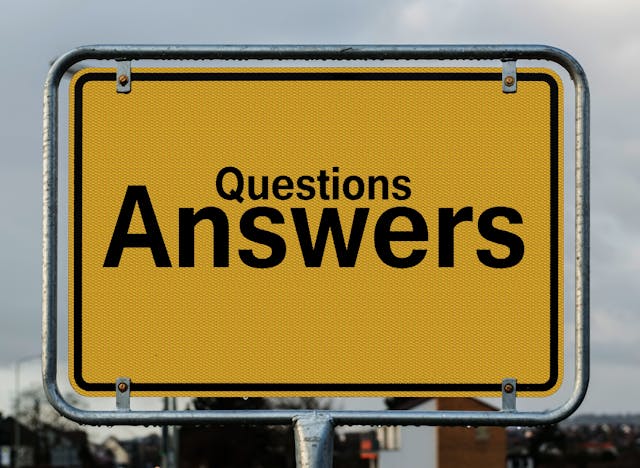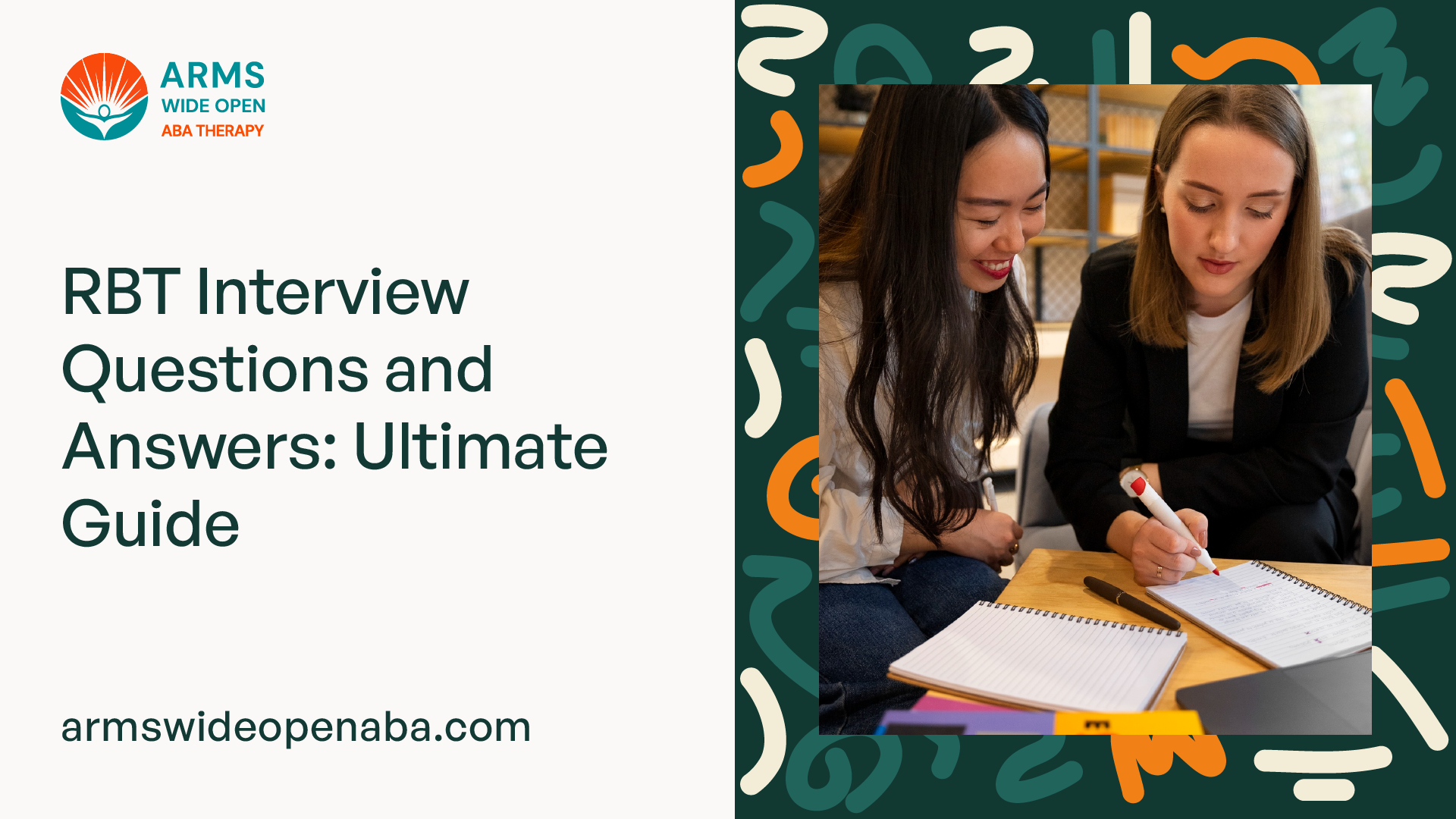RBT Interview Questions and Answers: Ultimate Guide
Unlock the secrets of RBT interviews with our ultimate guide! Master common questions and answers for success.

RBT Interview Questions and Answers: Ultimate Guide
Embarking on a career as a Registered Behavior Technician (RBT) requires not only the necessary qualifications but also the ability to effectively navigate the interview process. To help you prepare, this ultimate guide will provide you with a comprehensive list of RBT interview questions and answers to give you an edge during your interview.

Introduction to RBT Interviews
RBT interviews are designed to assess your knowledge, skills, and experience in working with individuals with developmental disabilities. During the interview, you can expect questions that delve into your understanding of applied behavior analysis (ABA) principles, your ability to handle challenging behaviors, and your strategies for promoting positive reinforcement.
It is essential to approach the interview process with confidence, showcasing your expertise and suitability for the role. By understanding the types of questions commonly asked and preparing thoughtful answers, you can increase your chances of success.
Importance of Preparing for RBT Interviews
Preparing for RBT interviews is crucial to ensure you can effectively communicate your qualifications and experiences. Adequate preparation allows you to articulate your skills and knowledge clearly, making a strong impression on the interviewers.
To excel in RBT interviews, consider researching the organization you are applying to, practicing mock interviews, and preparing questions to ask the interviewer. These strategies will demonstrate your enthusiasm for the position and your commitment to providing quality care to individuals with developmental disabilities.
By investing time and effort into preparing for RBT interviews, you can approach the interview process with confidence and increase your chances of securing the role. The following sections will provide you with common RBT interview questions, answer tips, and behavioral questions to further enhance your preparation.
Common RBT Interview Questions
Preparing for an RBT (Registered Behavior Technician) interview involves familiarizing yourself with the types of questions that may be asked. Here are three common RBT interview questions along with some guidance on how to approach them:
Question 1: Describe your experience working with individuals with developmental disabilities.
This question aims to assess your experience and understanding of working with individuals who have developmental disabilities. When responding, it is crucial to provide specific examples that showcase your skills and knowledge in this area. Highlight any relevant work experience, internships, or volunteer positions where you have interacted with individuals with developmental disabilities. Emphasize your ability to create a supportive and inclusive environment, implement behavior intervention plans, and assist with skill acquisition.
Question 2: How do you handle challenging behaviors?
Challenging behaviors are a common aspect of working with individuals with developmental disabilities. The interviewer wants to gauge your ability to address such behaviors effectively. In your response, describe your approach to managing challenging behaviors, such as using positive reinforcement techniques, implementing behavior modification strategies, and employing visual supports. Provide examples of specific techniques you have used, such as token economies, visual schedules, or social stories, to demonstrate your proficiency in handling challenging behaviors.
Question 3: What strategies do you use to promote positive reinforcement?
Promoting positive reinforcement is a fundamental aspect of working as an RBT. This question aims to assess your knowledge of effective strategies for reinforcing positive behavior. When answering, discuss various techniques you have used, such as using praise, rewards, and social reinforcers to encourage desired behaviors. You can also mention the importance of individualizing reinforcement strategies based on the unique needs and preferences of each client. Emphasize the significance of data collection and analysis to measure progress and make informed decisions regarding reinforcement strategies.
By preparing thoughtful responses to these common RBT interview questions, you can demonstrate your expertise and suitability for the role. Remember to provide specific examples, highlight your knowledge of applied behavior analysis (ABA), and showcase your problem-solving skills.
RBT Interview Answer Tips
Preparing for an RBT interview involves not only familiarizing yourself with common questions but also knowing how to provide effective answers. Here are three tips to help you excel in your RBT interview:
Tip 1: Provide Specific Examples
When answering RBT interview questions, it's essential to back up your responses with specific examples from your past experiences. By sharing concrete instances where you applied your skills and knowledge, you demonstrate your ability to translate theory into practice.
For instance, when asked about your experience working with individuals with developmental disabilities, you can mention a specific case where you implemented behavior plans to support a client's communication skills. Describing the strategies you used and the positive outcomes achieved can showcase your practical expertise.
Tip 2: Highlight Your Knowledge of Applied Behavior Analysis (ABA)
As an RBT, having a solid understanding of Applied Behavior Analysis (ABA) is crucial. Showcasing your knowledge of ABA principles and techniques during the interview can set you apart from other candidates.
When asked about handling challenging behaviors, you can emphasize the importance of functional behavior assessments and the use of behavior intervention plans based on the principles of ABA. Discussing how you have successfully used reinforcement strategies, prompting techniques, or data collection methods grounded in ABA principles can demonstrate your expertise.
Tip 3: Demonstrate Your Problem-Solving Skills
RBTs often encounter situations that require quick thinking and problem-solving abilities. Highlighting your problem-solving skills during the interview can impress the interviewer and showcase your ability to handle challenging situations effectively.
When faced with a behavioral question, such as describing a time when you had to adapt your approach to better meet the needs of a client, explain how you analyzed the situation, identified the underlying factors contributing to the behavior, and devised a new strategy to address it. Emphasize your ability to think critically, be flexible, and adjust your approach based on individual client needs.
By following these tips, you can provide strong and convincing answers during your RBT interview. Remember to be concise, confident, and demonstrate your passion for working with individuals with developmental disabilities. Good luck!
Behavioral Questions in RBT Interviews
Preparing for an RBT (Registered Behavior Technician) interview involves familiarizing yourself with common behavioral questions that may be asked. These questions are designed to assess your skills, knowledge, and experiences in working with individuals with developmental disabilities. Here are three behavioral questions frequently asked in RBT interviews:
Question 1: Describe a time when you had to work as part of a team to address a behavioral challenge.
This question aims to evaluate your ability to collaborate and problem-solve within a team dynamic. When answering this question, provide a specific example from your past experience. Discuss the behavioral challenge you encountered, the team you worked with, the role you played, and the steps you took to address the challenge effectively.

Question 2: How do you collect and analyze data to measure progress?
As an RBT, data collection and analysis are crucial for tracking the progress of individuals with developmental disabilities. When responding to this question, highlight your knowledge of data collection methods and measurement tools used in Applied Behavior Analysis (ABA). Explain how you collect data systematically, ensure its accuracy, and analyze the data to identify patterns and trends.

Question 3: Share an experience where you had to adapt your approach to better meet the needs of a client.
This question assesses your flexibility and ability to adapt your strategies to suit individual client needs. Provide a specific example where you encountered a situation that required adjusting your approach. Explain the client's unique needs, the initial approach used, and the modifications you made to better support the client's progress.

When preparing for RBT interviews, it's important to review and practice answering behavioral questions such as these. By providing specific examples, highlighting your knowledge of ABA principles, and demonstrating your problem-solving skills, you can showcase your qualifications and increase your chances of success in the interview process.
Tips for Acing RBT Interviews
Preparing for an RBT (Registered Behavior Technician) interview is crucial to increase your chances of success. Here are three valuable tips to help you ace your RBT interview:
Tip 1: Research the Organization
Before your interview, take the time to research the organization you are applying to. Familiarize yourself with their mission, values, and the populations they serve. This knowledge will demonstrate your genuine interest in the organization and your commitment to providing quality care to individuals with developmental disabilities.
Additionally, researching the organization will enable you to tailor your answers to align with their specific goals and approaches. Highlight how your skills and experiences align with the organization's mission, showcasing your enthusiasm and dedication.
Tip 2: Practice Mock Interviews
Practice makes perfect, and mock interviews are an excellent way to sharpen your interview skills. Enlist the help of a friend, family member, or mentor to conduct mock interviews with you. Practice answering common RBT interview questions, paying attention to your body language, tone of voice, and overall confidence.
Use this opportunity to refine your responses, ensuring they are clear, concise, and showcase your relevant experience and skills. Consider recording yourself during these practice sessions to identify areas for improvement and make adjustments accordingly.
Tip 3: Prepare Questions to Ask the Interviewer
Asking thoughtful questions during an RBT interview demonstrates your genuine interest in the role and your desire to learn more about the organization. Prepare a list of questions to ask the interviewer to showcase your curiosity and engagement.
Consider inquiring about the organization's approach to training and professional development opportunities for RBTs. You can also ask about the team dynamics or the specific challenges and rewards of working with their particular population. These questions not only provide you with valuable information but also convey your commitment to personal and professional growth.
By researching the organization, practicing mock interviews, and preparing questions for the interviewer, you can confidently approach your RBT interview. Remember to showcase your passion for working with individuals with developmental disabilities, highlight your knowledge of Applied Behavior Analysis (ABA), and demonstrate your problem-solving skills. With these tips in mind, you are well-equipped to excel in your RBT interview.
Sources
https://www.bridgecareaba.com/blog/rbt-interview-questions-and-answers
https://interviewprep.org/action-behavior-center-registered-behavior-technician-interview-questions/
https://www.ziprecruiter.com/career/job-interview-question-answers/behavior-technician
Similar articles
We’re here to help you

Our team is here to assist you in this process. Contact us for any assistance.
it’s easy to apply
We Accept Most Insurances
Our in-network insurance partnerships make ABA therapy more accessible to families throughout our service areas.







Our Insurance Process
We'll request your insurance details to help us verify your plan's coverage for ABA therapy. Once we've received this information, we'll walk you through your benefits, including copayments, deductibles and out-of-pocket maximums, so you know what to expect in advance.
Our team will then handle the preauthorization and all the necessary paperwork.
.svg)





















.jpeg)


































.jpeg)




.jpeg)







.jpeg)











.jpeg)
















